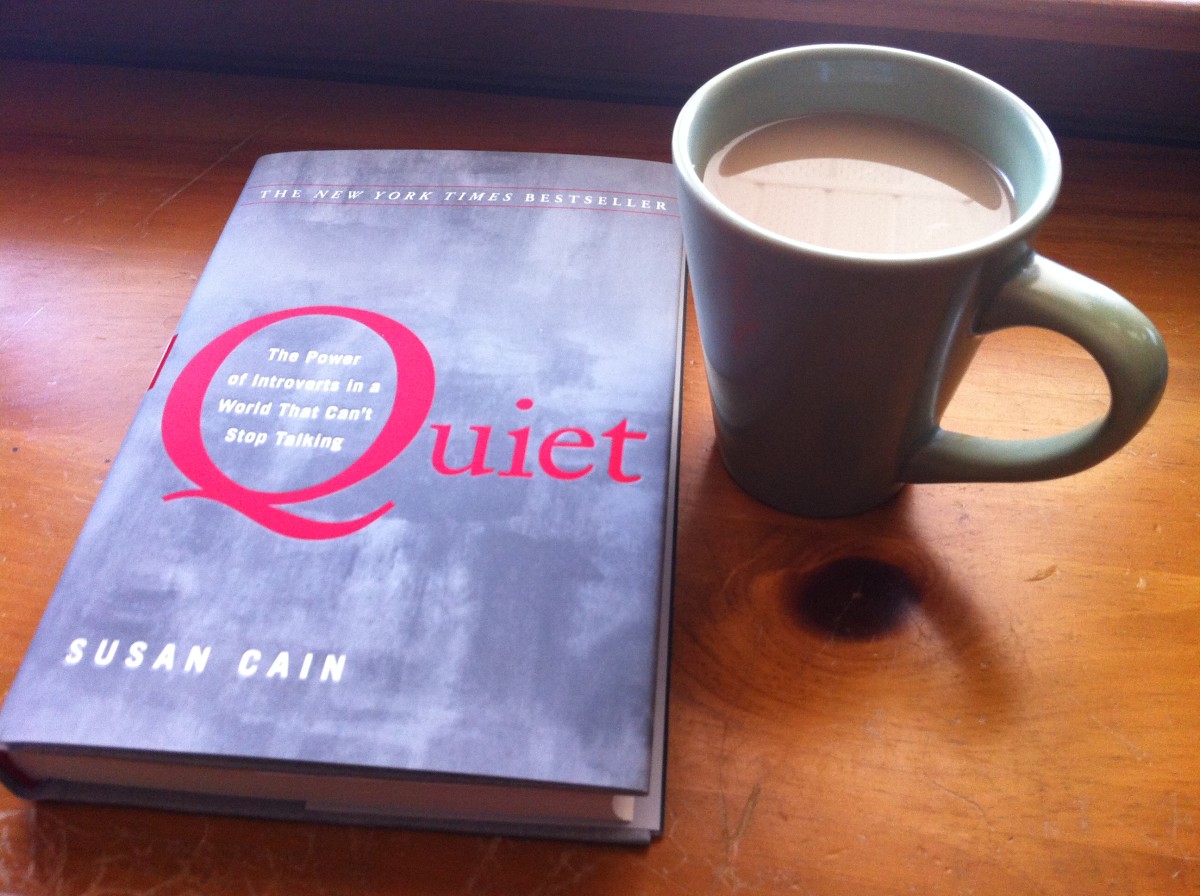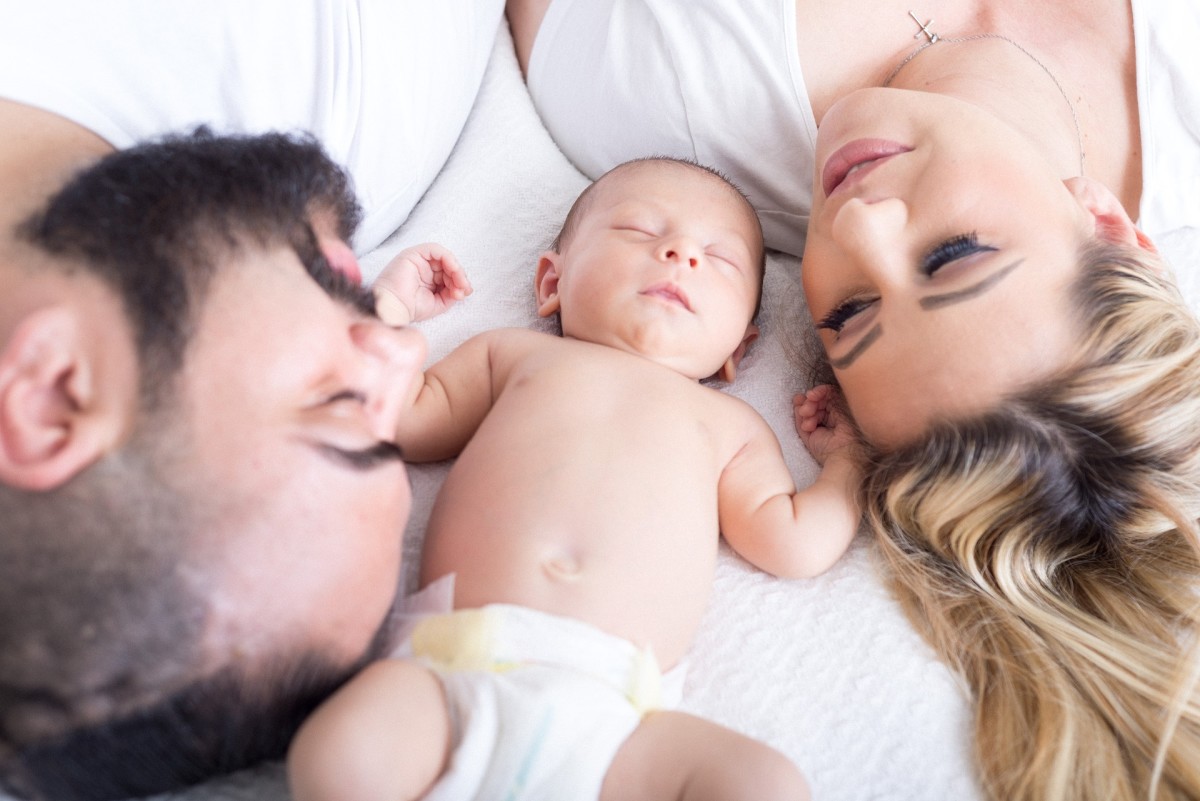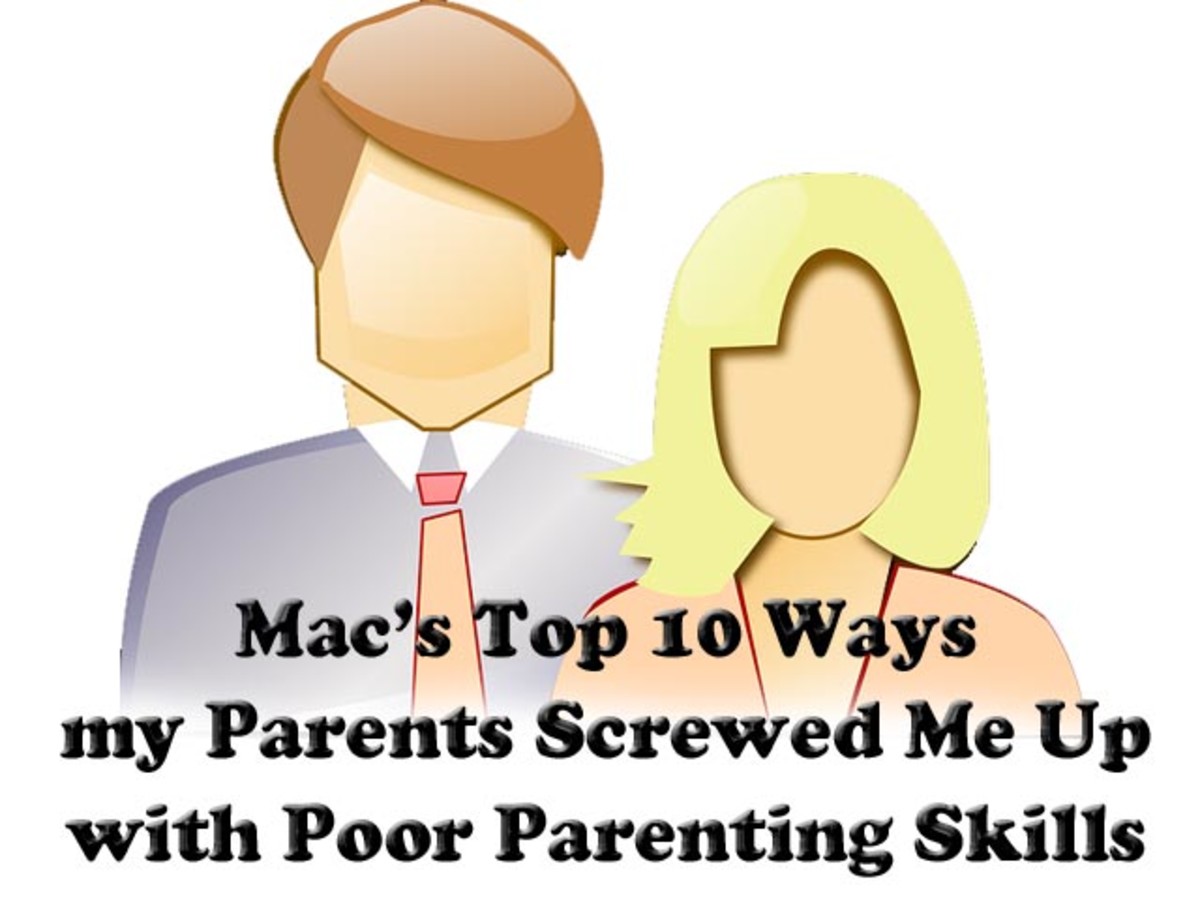Extroverted Parents of Introverted Children













I Just Do Not Understand My Child- He/She Is Soooo Not Like Me At All!
The parent-child relationship is such a complex one. It has so many intricacies and nuances. Parents and children must learn to interact with each other. Eventually, they must learn to understand one another. A child's first exposure to society and culture is often from his/her parents. It is also the parent who is the child's first teacher.
Parents impart their values unto their children. While some enlightened and evolved parents realize that their children are not their children but are individual beings with their own specific dreams and life goals, many other parents often inculcate their children to be exact replicas of them much to the latter's dismay. What many parents fail to realize that their children are often vastly different from them in terms of personality among other factors.........
The average parent is the happiest when his/her child has the same personality and/or outlook as they. This child is deemed to be easy to get along with and manageable. He/she is often looked upon with more favor by the parent. Conversely, children with opposite personalities of their parents are often misunderstood and considered to be more difficult. Parents often wonder what is "wrong" with such children............ especially if the parents are extroverted and their children are introverted.
Extroversion and introversion are subjects of such contention in this society. The majority of people in this society can be classified as extroverts. In fact, this society is extroverted with its emphasis on being aggressive, gregarious, and in your face. This society is also a fast paced one where being the fastest is often rewarded. Extroversion is viewed very positively in this society. Extroverted people are viewed as more glamorous, smarter, hipper, and more intelligent. They are oftentimes considered to be leaders. Yes, the rewards for being an extrovert are quite innumerable.
Introverts comprise 33% of the population of this society. Yes, introverts are a minority. Introversion, until very, very recently, was considered to be an aberrant personality type. Introverts were classified quite negatively as being slow, retarded, withdrawn, antisocial, shy, having no personality, being colorless, and boring. Even now, people underestimate introverts because they have a different mindset than extroverts. They are often considered to be less intelligent because they are not as talkative and outgoing as the extrovert. In other words, being an introvert is highly undesirable.
Many introverts feel out of touch in this extroverted society. Oftentimes, their personality is invalidated by their family, friends, and associates. Many people either fail and/or refuse to understand and appreciate the introvert personality. Many introverts feel like outcasts in this society.
Introverts face multiple problems if they have extroverted parents and/or born into an extroverted family. Extroverted parents are often at different wavelengths than their introverted children. The former are usually energized by the outside environment. They are stimulated being around people and participating in a myriad of activities. Nothing suits them more than to be consistently busy with a whirlwind of people and activities.
Because extroverted parents love being energized by people and outside events, they are often nonplussed that their introverted children prefer to be alone and indulge in solitary activities. They contend that because their introvert child is often on a much different wavelength that he/she is abnormal and needs to get around more. These parents subconsciously believe that their introverted child is somewhat amiss so they enroll him/her in a myriad of activities in order for them to develop social skills and to be more socially acceptable.
It seems that the introverted child is totally unacceptable to his/her extroverted parents as he/she is. To this parent, the introverted child "needs to be fixed" so to speak. Many extroverted parents, in particular, feel somewhat ashamed of their introverted child. They wonder to themselves why their children are not like other children. They contend that it is wrong for a child to be always wanting to stay inside, reading a book when he/she could be playing outside with other children. To many extroverted parents, the introverted child is just weird.
Introverted children of extroverted parents are often quite invalidated and are not supported. Oftentimes, they are compared to quite unfavorably to the extroverted children, either siblings, cousins, other relatives, and nonrelated children. Extroverted parents usually make glowing references to other extroverted children while denigrating their children's introversion. They would remind their introverted children that they would be more happier, popular, and successful if they were not introverted.
Such parents believe that because their children are introverted, they are emotionally and socially backwards although the latter are highly intelligent. These parents are of the opinion that the more gregarious and sociable a child is, the smarter he/she is. There are some extroverted parents who view their introverted child as slow because he/she is not into socializing and having lots of friends. They cannot understand that their introverted child is more at ease with fewer friends.
There is an instance of an extremely extroverted mother who called her introverted daughter a deadhead because the latter did not want to participate in a myriad of activities which the former deemed typical of a tween girl. Her daughter preferred to be at home, reading and/or indulging in solitary activities. The daughter was clearly exhausted and wished for more time to indulge in the activities which she was interested in. However, her mother had a different agenda. Her mother enrolled in dancing classes, charm school, and related activities.
Even though the daughter was an honor student, her mother considered her to be slow and awkward because she did not want to participate in social activities. This mother portended that her daughter would be more socially acceptable to her "peers" if she had a myriad of activities. However, the daughter is clearly unhappy with this, preferring more solitary activities.
Another instance is a former coworker who had an introverted daughter who attended high school with a more popular classmate who eventually became a beauty contest winner and a renowned celebrity. This coworker spoke glowingly of the extroverted classmate, stating that she was so outgoing and had a personality while her daughter was a quiet mouse. She constantly told her daughter that she wished that the latter was more like the popular classmate much to the latter's utter chagrin. The daughter's introversion was never accepted by the mother who deified extroversion.
Yes, extroverted parents receive societal messages that introversion is not what a normal child should be. They are not only inundated by the general society that their introverted children are considered to be less than normal, they also receive this message from family, friends, and associates. As a result of such ingrained messages, many extroverted parents feel that it is their parental duty to get their introverted child "out of their shell" so to speak.
What many extroverted parents fail to realize is that introversion is an acceptable and legitimate personality type. Introverted people have a different mindset and psychology from that of extroverts. Introverted people are energized by inner events. They are also comfortable with being alone and indulging in solitary activities and pursuits. They also have fewer friends than their extroverted peers and associates.
Thus introverted children are quite in their element reading and pursuing solitary hobbies. Although they socialize, they need alone and quiet time to recuperate their energies. They also do not like meaningless conversation but when they communicate, they prefer it to be of value. They are often cautious by nature, preferring to carefully assess a situation before going in. While extroverts consider such actions slow, introverts consider such actions smart and savvy. The motto of many introverts is fools rush in where angels fear to tread.
Many extroverted parents, as other extroverts, put their agenda on their children, often inadvertently effecting them in the process. As a result of extroverted parents not considering their introverted children, the latter often feel quite diminished as a person. Such children feel that their introversion is inferior and attempt to become more extroverted in order to be accepted.
Other introverted children of extroverted parents decide to become as anonymous as possible. They believe that since they were told that they are inferior, they lose any semblance of what self-esteem is left. They feel that they will never be enough no matter what they do so they stop trying.
Quite a few introverted children become rebellious. They portend that there is nothing absolutely wrong with their introversion. They contend that if others refuse to acknowledge their introversion, then it is other people's problems, not theirs. This even extends to their parents and other family members.
In conclusion, in this society, extroversion is often rewarded while introversion is often denigrated. This glorification is a reflection of the extrovert majority. Introverts comprise 33% of this society's population. Introverts, as other minority members, are often discriminated against and misunderstood by the majority society.
Introverted people, especially children, are often considered to be outsiders by their extroverted family members, particularly parents. Many extroverted parents believe that there is something inherently wrong with their introverted children. Subconsciously, they want their children to be more outgoing and sociable like the extrovert majority children.
Well-meaning extroverted parents often enroll their introverted children in myriad activities in order for the latter to get out of their shells so to speak. What these parents fail to understand that introversion is just as a legitimate personality type as extroversion is. Many extroverted parents convey an underlying message to their introverted children that they are not acceptable as they are and to be more acceptable, they must become extroverted.
Such messages often have a deleterious effect on the introverted child. He/she often feels "lesser" in comparison to the extroverted child. He/she also feels that something is indeed wrong with him/her although this is not the case at all. Introverted children have gifts and an uniqueness which their extroverted parents should embrace and encourage. Remember the adage that still waters run deep.
© 2012 Grace Marguerite Williams








